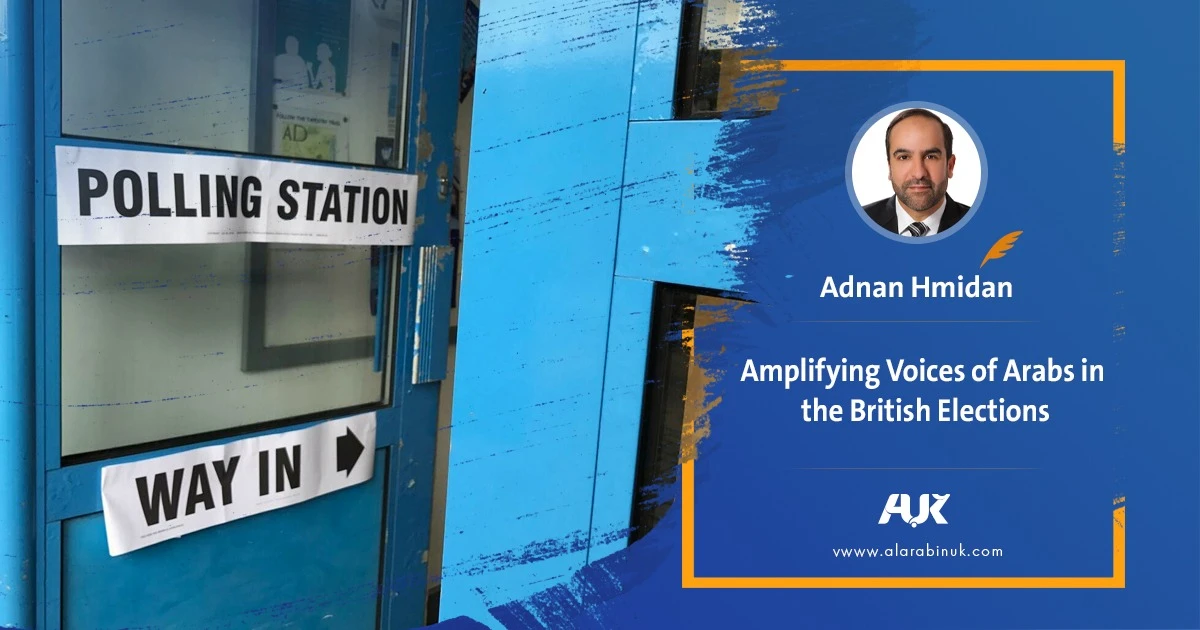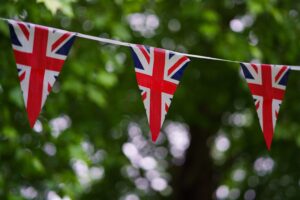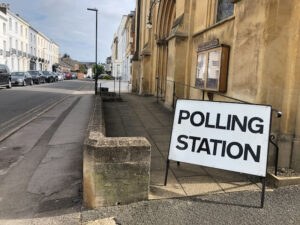Amplifying Voices of Arabs in the British Elections

The influence of minorities in the public life of democratic and open societies is not solely determined by their numbers, but also by their presence, engagement, and interaction. This is exemplified by many minorities, including the Arab community in Britain. They are advocating for a more effective participation in the upcoming elections, partly in solidarity with the bleeding wounds of Gaza and also due to the significant Arab presence in cities like London, Manchester, and across the UK, where individuals of Arab origins have notable presence in various other sectors, including doctors who have become a substantial part of the NHS healthcare sector.
Navigating Political Landscapes: Arab Presence in British Cities

Estimates suggest that the Arab community in Britain comprises nearly a million individuals, with the majority located in London and Manchester, despite official records indicating lower figures. However, this does not diminish their potential to influence, especially considering the professional and academic competencies within their ranks. Together with the Muslim minority and many left-leaning British individuals and human rights activists, they have the capacity to make a qualitative difference in the upcoming elections, such as the London mayoral election scheduled for May, and the general elections later this year.
This coincides with an unprecedented level of incitement by the Conservative government led by Rishi Sunak, blaming British Muslims and solidarity protests with Gaza for its failures in managing the country’s internal and external affairs. Instead of addressing its failures, the government attempts to divert attention by baselessly accusing those who oppose aggression on Gaza. These gross violations of international human rights conventions by Israel in Gaza, including ethnic cleansing, brutal extermination, and collective punishment, have garnered significant Western sympathy. This empathy ought to be channeled politically and civically by boycotting those involved in or indifferent to such atrocities, while endorsing candidates who oppose injustice and uphold human dignity, both in Palestine and globally.
Mobilizing the Arab Community

The Arab community in Britain also has the right to endorse candidates they believe are capable of participating in the electoral process and recognize their political influence as individuals. For instance, individuals such as Nadhim Zahawi, of Iraqi Kurdish descent, who secured a seat for the Conservative Party, or figures like Layla Moran from the Liberal Democrats, Layan Muhammed in North Elford, Mona Adam in Kensington, Kamel Hawwash in Birmingham, and Dr. Mohammad Alhadj Ali in Cardiff.
One potential weakness for Arab candidates in the upcoming elections is their participation as independent individuals or as members of smaller parties rather than the major mainstream parties in the country, and some of them competing in constituencies with more prominent candidates or former MPs known for their strong and courageous stances in solidarity with Palestine and other issues. Thus, sympathetic minorities might prioritize candidates from their communities over Arab candidates in those areas.
However, there are still constituencies where competition is open, and the presence of Arab Muslim candidates will have its greatest impact.

It is not uncommon in British politics for certain minorities within the country to seek qualitative representation that preserves their rights. British Jews sympathetic to the Zionist movement are active in this regard, as well as officials traveling to tribal areas in India and Pakistan to persuade leaders to encourage their tribesmen in Britain to vote for them.
All the aforementioned reasons underscore the importance of engaging with the “Arab Voice” campaign launched by the Arab platform in Britain, which initially included around 140 Arab personalities from various cities. They have formed a coordinating body and outlined a general framework for action to make a qualitative difference and play a more influential role, complementing other campaigns initiated by minorities and entities close to British Arabs.
As students of the adage “The wolf only eats the stray sheep” and advocates of the motto “God’s hand is with the united community,” we are committed to coordinated collective action to make a qualitative impact, standing up for the oppressed in Gaza and safeguarding the rights of future generations.
Read More:
ShortURL ⬇


